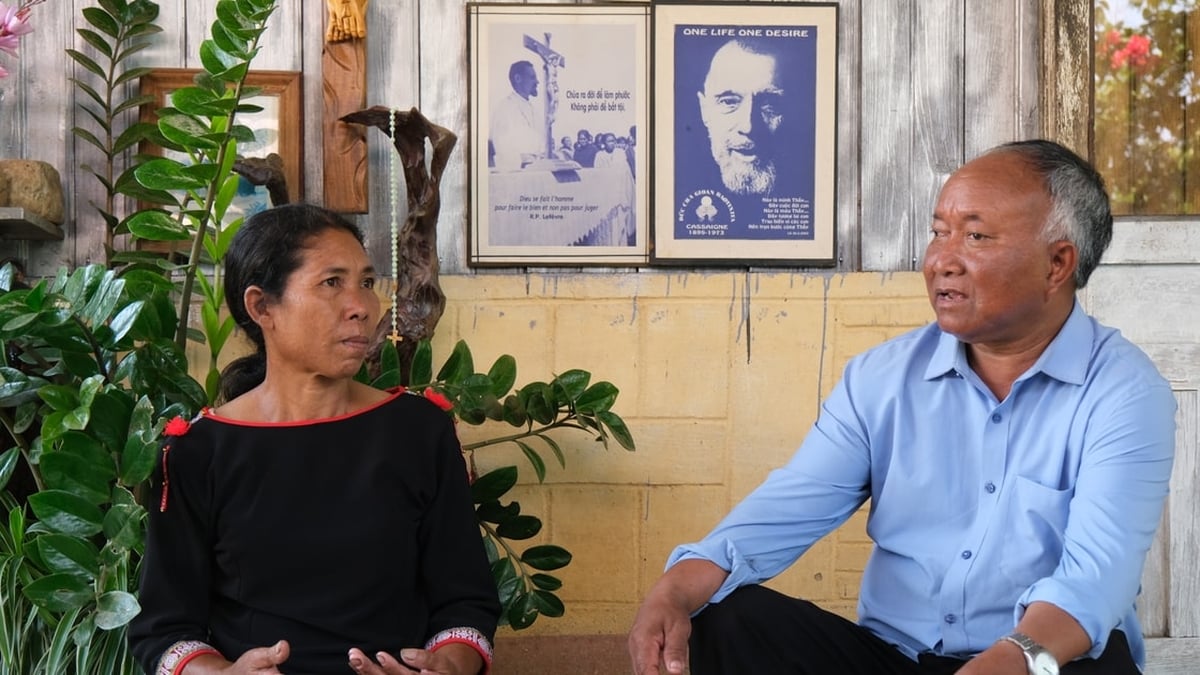Commercial banks have all pledged to support the policy of reducing interest rates to support people and businesses in the context of weak consumer demand. However, some economic experts believe that: Reducing interest rates is only a necessary factor, promoting effective economic growth requires many synchronous solutions.

Interest rates cool down compared to the beginning of the year, preferential credit packages continue
After the State Bank of Vietnam (SBV) continued to reduce some operating interest rates by 0.5%, commercial banks all responded to this policy; at the same time, they committed to promptly implementing the interest rate reduction. Since the beginning of the year, the SBV has adjusted the operating interest rates down 3 times with a total reduction of 0.5 - 1.5%/year.
“The State Bank’s reduction of operating interest rates creates the premise for banks to reduce deposit interest rates. This will reduce capital costs and create conditions to reduce lending interest rates. This interest rate reduction is expected to have a stronger spread and reduce lending interest rates to support production and business enterprises,” said Associate Professor Dr. Dinh Trong Thinh (Senior Lecturer of the Academy of Finance).
According to Mr. Pham Nhu Anh, General Director of MB Bank, this is the right time to help banks reduce deposit interest rates, thereby reducing lending interest rates. The market is currently absorbing capital very weakly, the economy is facing many difficulties, so reducing the operating interest rate will support many customers and banks in the coming time. Immediately after the State Bank reduces deposit interest rates this time, MB will continue to have new policies to support customers.
“In parallel with reducing interest rates, MB has continuously launched preferential interest rate packages for customers, reducing interest rates for disadvantaged customers and priority customers. Since the beginning of the year, MB has launched 120,000 billion VND in low-interest credit packages to serve customers' needs and support customers during difficult times. In the past time, MB has reduced interest rates to support customers with an amount of up to 500 billion VND for disadvantaged customers and priority customers according to the requirements of the Government and the State Bank,” said Mr. Pham Nhu Anh.
When the deposit interest rate level decreases evenly, the lending interest rate will also decrease accordingly. Vietcombank is closely monitoring and will promptly implement the interest rate reduction to meet the needs of the economy and the people as well as better support the overall development.
Mr. Le Quang Vinh, Deputy General Director of Vietcombank affirmed: The bank always closely follows the monetary policy directives of the State Bank. Regarding this interest rate reduction, Vietcombank representative assessed that this was a correct and timely decision.
"Since the beginning of the year, Vietcombank has significantly reduced interest rates twice. From January 1 to April 30, we simultaneously reduced 0.5% on the number of customers receiving reduced interest rates, which is 130,000 customers, with the amount of reduced interest rates equivalent to VND 800,000 billion. Immediately after the first phase ended, Vietcombank continued to implement the second phase, from May 1 to July 31, with the number of customers receiving reduced interest rates being about 110,000 customers, the scale of outstanding loans with reduced interest rates being about VND 700,000 billion," said a Vietcombank leader.
Speaking to Tin Tuc newspaper reporters on May 26, a representative of PvcomBank said: Compared to the beginning of 2023, loan interest rates at PVcomBank have decreased by 2-4%. Currently, the bank is implementing a preferential credit package with an interest rate of VND 13,500 billion, in which PVcomBank focuses on serving the customer segment of business households, micro-enterprises (M.SME) and individuals who want to buy houses. PVcomBank expects the credit package to contribute to promoting credit growth in particular and the borrowing needs of people in general, helping individuals and businesses easily access cheap loans, thereby contributing to the recovery of production and business activities, creating momentum for the re-development of the economy.
“Since the beginning of the year, PVcomBank has adjusted its deposit interest rate table 10 times, significantly contributing to reducing capital costs for the bank. The total interest rate reduction is 1.5% with the main terms being 6, 12, and 15 months. Deposit sources are still quite high compared to other investment activities, so customers have a need to shift to long terms," said Mr. Tong Huy Man, Director of Capital Mobilization Product Development for PVcomBank.
"In the current period, business income is decreasing. High financial costs are also an obstacle for manufacturing enterprises as well as consumers. When interest rates are more 'reasonable', everything will be more favorable, investment and production and business decisions will be more feasible. We can expect credit growth," said Mr. Nguyen Hung Tong, Director of TPBank.
According to Mr. Ho Tan Tai, Deputy General Director of ACB, the State Bank's policy is to encourage commercial banks to reduce lending interest rates, but the level of reduction depends on the financial health, input interest costs, and customer strategy of each bank.
“No bank wants to lend at high interest rates in capital business, but the interest rate reduction depends on the input capital price, the general level and the world market developments. However, in terms of trends, I think that lending interest rates will decrease further in the coming time,” said the ACB leader.
Stimulating consumer demand is an important factor in promoting growth.
According to ACB Securities Company (ACBS), the State Bank of Vietnam's interest rate reduction is only a necessary condition, not a sufficient condition, to promote Vietnam's economic growth. Specifically, production and consumption are two important sectors in the Vietnamese economy, and both sectors are currently facing a decline in activity. Therefore, people will not have the need to borrow to spend more and businesses will not intend to borrow to expand production activities.
“We may have to wait for the recovery of consumption demand from those major trading partners. In addition, when the manufacturing industry recovers, Vietnam's domestic consumption demand will also recover. These impacts are sufficient conditions to boost Vietnam's growth in 2023. The government's determination to boost public investment will be the driving force for Vietnam's economic growth in 2023,” ACBS said.
Dr. Nguyen Huu Huan - Head of Finance Department (Ho Chi Minh City University of Economics) analyzed: Reducing interest rates is only a necessary factor, promoting effective economic growth requires many synchronous solutions.
"The economic demand is weak, businesses do not see business opportunities, even if interest rates are reduced, businesses will not borrow for anything. Therefore, stimulating consumer demand is an important factor to promote economic growth. And to effectively stimulate demand, it must certainly come from the public sector because now the health of the private sector has declined sharply," said Dr. Nguyen Huu Huan.
"Up to now, the interest rate level has stabilized and tends to decrease, the average new loan interest rate is about 9.25%/year (down 0.7% compared to the end of 2022), while the average mobilization interest rate is 6.21%/year... As of May 16, the total outstanding credit balance of the whole economy reached over 12.25 million billion VND, an increase of only 2.72% compared to the end of 2022", said Ms. Ha Thu Giang - Director of the Department of Credit for Economic Sectors (SBV).
Source
























![[Photo] National Assembly Chairman Tran Thanh Man visits Vietnamese Heroic Mother Ta Thi Tran](https://vphoto.vietnam.vn/thumb/1200x675/vietnam/resource/IMAGE/2025/7/20/765c0bd057dd44ad83ab89fe0255b783)









































































Comment (0)